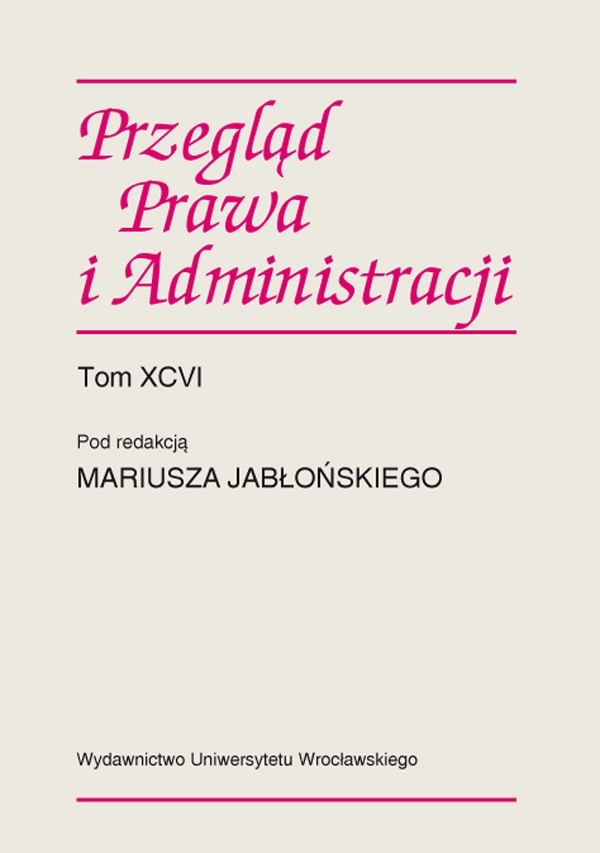

Archival articles

FUNDAMENTAL RIGHTS AS A JUSTIFIED RESTRICTION ON THE FREEDOMS OF THE INTERNAL MARKET OF THE EUROPEAN UNION
In recent years we have seen the increase of the importance of fundamental rights protection within the EU legal order, also in the area of internal market freedoms. Initially, the need to take fundamental rights protection into account stemmed primarily from the need to avoid the resistance of member states towards the internal market. Its implementation could indeed be connected with limitations to fundamental rights. Currently, it is important that in the light of the Lisbon Treaty the legal status of fundamental rights and freedoms of the internal market has been theoretically equated. There are various situations in which the fundamental rights and freedoms of the internal market come into interaction. One can generally include those situations in which fundamental rights are the reasons for deviation from the compliance with internal market freedoms, those in which fundament al rights strengthen fundamental freedoms, those relating to freedom of movement and those which relate to issues of conceptualization of freedom of movement as fundamental rights. Practical aspect of current case law connected with situations in which fundamental rights are the reasons for deviation from the compliance with internal market freedoms shows that the fundamental rights are in fact protected as legitimate restrictions on fundamental freedoms through case by case assessment of a particular case. It is worth noting that the principle of proportionality plays here an important role. From a theoretical point of view, the situation is much worse. This is because the Court of Justice of the European Union is not able to clearly define the status of fundamental rights in relation to the basic freedoms of the internal market therefore failing to provide adequate protection of fundamental rights, or a sense of legal certainty. It is, however, worth noting that the primary legal status of the Charter of Fundamental Rights, causes that the fundamental rights contained therein will be subject to the same rules as other European Union law regulations, including the effet utile principle.